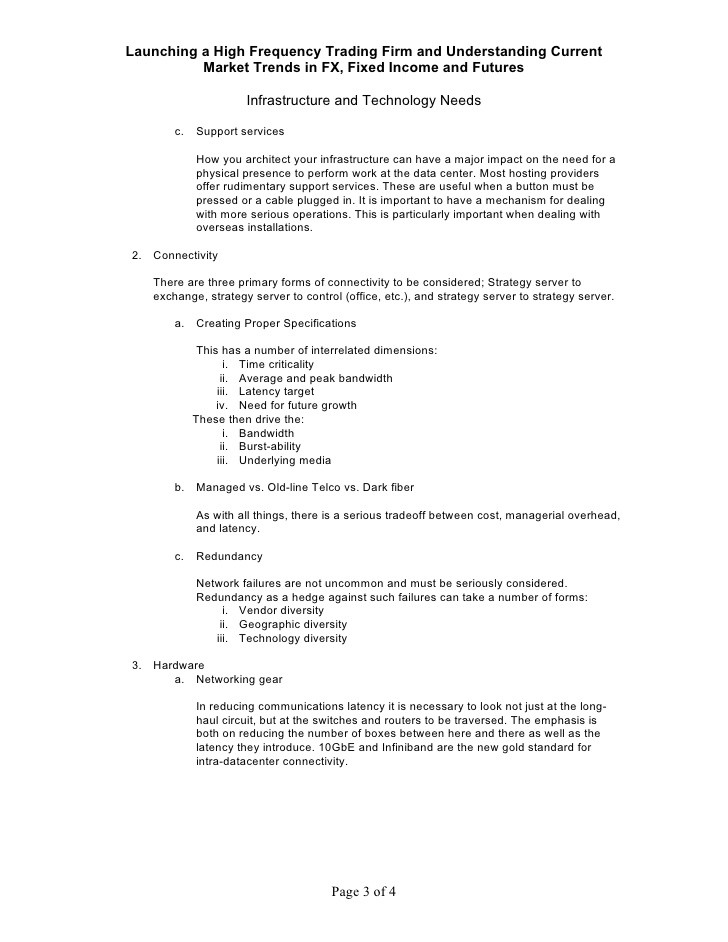Trading Algo Patents Will Firms Seek More Protection Wall Street & Technology
Post on: 16 Март, 2015 No Comment

Patenting a trading algo can be a long and painful process, but many firms pursue the protections for their inventions.
Patenting trading algorithms has been a trend for the past 10 years, significantly increasing a firm’s cost for legal representation and exacerbates concerns for patent information leakage. With the additional costs and potential liabilities, why would a financial services organization pursue a patent in the first place?
Despite the concerns, many firms patent a least a few of their many algorithms. This summer, RBC Capital Markets (RBC) received their patent on Thor. The patent covers RBC’s proprietary technology which synchronizes the arrival of orders at multiple venues for all financially traded instruments. Thor is designed to minimize delay in simultaneously buying and selling so they arrive at the same time at each exchange or trading platform. The patent approval took almost two years.
Waiting two years or more to receive a patent on a product that usually takes 6 to 12 months to develop seems counterintuitive, especially since technology and the market changes rapidly during the patent approval process. For instance, during the time it takes to receive a patent, the market could shift and the algo that was patented may no longer be useful.
In addition, companies must also expose information about these HFT algorithms in accordance to American Inventors Protection Act of 1999. Under the act, U.S. patent applications must be published 18 months after the date filed or, upon request, earlier.
The reason for the 18-month advanced publishing date is so inventors can obtain royalties from those who make, use, sell, or import the invention during the time between the application is published to when the patent is granted, according to a release by U.S. Patent and Trademark Office .
However, this creates the concern for information leakage. Leakage is a major concern for financial institutions that rely on keeping their trading methods a secret in order to protect themselves from competition that may aggressively copy or mimic a trading strategy.
You hear the phrase ‘mitigate leakage’ all the time in our world, there’s nothing more leaky then a patent application, says David Weiss, senior analyst at Aite Group .
Weiss adds, the information surrounding a patent, including testing data can be sensitive. All that stuff is very proprietary, by in large, he adds.
Financial firms weight these factors, and much more, while determining whether their algorithm is worth patenting.
Since one of the first software patents was granted for a data storage algorithm to inventor Martin Goetz in 1968, software and algorithms have been controversial due to the difficulty in determining patentability.
However, algorithms created only to perform mathematical operations are not patentable, according to Robin McGrath, partner in litigation at Paul Hastings, and international law firm. One way to test whether an algorithm is patentable is to apply the machine or transformation test, where a method or process must either be tied to a machine or apparatus or transform a particle into a different state.
McGrath adds in an email, software works through the use of algorithms. Thus, software intended only to perform mathematical operations will not be patentable, though software that does so, for instance, in connection with the manufacture of an item or to achieve a particular result, may be patentable. The analysis regarding the patentability of software and algorithms will be quite similar.
Determining whether an algorithm is patentable can me a lengthy process. The patent process for RBC’s Thor started on Oct. 26, 2011, however, the application is a continuation of one filed on June 8, 2010, which is also a continuation of a provisional application filed on Dec. 10, 2009, according to Thor’s patent application.

Recently, an application to improve the Thor patent was filed on July 14, a process dedicated to giving the inventor an incentive to continue improving the invention. When the original invention is improved upon, the inventor can file for another patent without starting a new application.
For Thor, the complete process from the provisional application to filing for a continuation took about 3.5 years. One of the first trading algorithms patented, ITG Active Algorithm, by Investment Technology Group (ITG) . took almost 10 years to go through the process, according to patent records.
Managing Director and Deputy General Counsel at ITG Mark Solomon adds, When there is something we created, we think it’s important that we try to protect the innovation and the investment that went into it. So we regularly meet and discuss what new algos we’re developing. If it’s something that’s worthy of patent protection.
The patented algorithms created by ITG are labeled on their website. Some financial institutions, like RBC, will advertise and send out releases about their patented algorithm
Besides incorporating it in marketing strategy or sales pitches, the patent does very little for the firm to generate money. Offensively enforcing a patent is difficult due the need to keep the trading strategy behind the algorithm confidential.
In fact, the only way a firm would be able to find out if their patented algorithm is being used by another firm is if an investor brings it to their attention.
There have been a handful of cases involving patent infringement for capital markets processes, though most were settled. In 2006 Bloomberg LP settled a patent infringement suit brought by Thomson in 2003. In 2011, ITG and Liquidnet settled a patent infringement case when the companies came to an agreement to dismiss all claims in their respective lawsuits and cross-license each other under relevant patens in each suit, according to a release.
Allegations of patent infringement are the least of most firm’s worries, however, as all must think about possible leakage, which algorithms will last over time and how and the industry’s trading practices are changing. Still, as long as trading algorithms are patentable innovations, as defined by the court, firms will continue looking to protect them. Zarna Patel is a staff writer for InformationWeek’s Financial Services brands, which include Bank Systems & Technology, Insurance & Technology and Wall Street & Technology. She received her B.A. in English and journalism from Rutgers University College of Arts and Sciences in. View Full Bio














